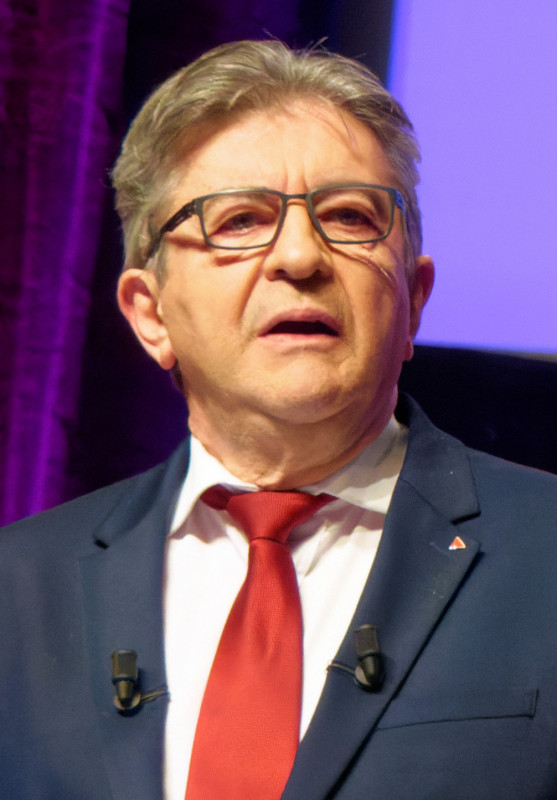Resilience and perseverance in the journey of Jean-Luc Mélenchon. A timeline of obstacles and growth.
Jean-Luc Mélenchon is a prominent French politician, currently the leader of La France Insoumise (LFI). He served as a deputy in the National Assembly for Bouches-du-Rhône (2017-2022) and led the LFI group there (2017-2021). Previously, he was a Member of the European Parliament (2009-2014). Mélenchon has run for President of France three times (2012, 2017, 2022), coming close to reaching the second round in 2022. He is a significant figure in French left-wing politics.
2002: Reference to Attack on Paul Voise
In 2002, Mélenchon referenced the attack on retiree Paul Voise before the presidential election as an example of events used for political gain.
2002: Refusal to endorse Macron
In 2002, after the first round of elections, Jean-Luc Mélenchon refused to endorse Emmanuel Macron. He told his voters that no votes should go to the National Front, as he had done in 2002.
2012: Criticism of economic globalization
During his 2012 campaign, Jean-Luc Mélenchon positioned himself against economic globalization, which he said disproportionately profited the financial industry and high-income earners at the expense of the poor.
2012: Reference to Toulouse Jewish School Attack
In 2012, Mélenchon cited the Jihadist attack against a Jewish school in Toulouse by Mohammed Merah before the presidential election as a politically exploited event.
2017: Reference to Paris Terrorist Attack
In 2017, Mélenchon referenced the terrorist attack in Paris before the presidential election as an example of events used for political purposes.
2017: Examination of the 2017 Labour Law bill
In 2017, during the examination of the 2017 Labour Law bill, Mélenchon was remarked in the National Assembly for his multiple interventions, defending the Labour Code status quo, arguing that flexibilisation would be harmful to workers. He also drew attention for denouncing a student benefits cut planned by the government.
2022: Presidential Campaign Prediction
During the 2022 presidential campaign, Mélenchon predicted an incident designed to create civil unrest by blaming Muslims.
2022: Presidential Run
In 2022, Jean-Luc Mélenchon ran for President of France for the third time, coming within 1.2 percentage points of reaching the second round.
2022: Strategy for the 2022 Presidential Election
In 2022, for the first round of the presidential election, Mélenchon's strategy was to unite left-wing anti-neoliberal parties against Emmanuel Macron. In the legislative election, Mélenchon and La France Insoumise joined the New Ecological and Social People's Union (NUPES).
2023: Dissolution of NUPES
In 2023, amid divisions, the NUPES coalition, which was led by Jean-Luc Mélenchon, dissolved.
Mentioned in this timeline
Ukraine is a country in Eastern Europe the second-largest on...
The United States of America is a federal republic located...
Venezuela officially the Bolivarian Republic of Venezuela is located on...
Saudi Arabia officially the Kingdom of Saudi Arabia KSA is...
Morocco officially the Kingdom of Morocco is a North African...
World War II - was a global conflict between the...
Trending

52 minutes ago Kelvin Sampson's Coaching Philosophy and Houston Cougars' SLAM Magazine Cover

53 minutes ago Trace Adkins Hints at Retirement with 2026 Tour Potentially Being His Last

53 minutes ago Urgent search: 3-year-old girl missing in Avondale, Amber Alert issued for safe return.

53 minutes ago Javonte Williams Signs 3-Year, $24 Million Contract Extension with the Dallas Cowboys

53 minutes ago Jackie Chan Shines in 'Unexpected Family' and Berlin Film Festival Recognition
54 minutes ago DAZN and Matchroom Boxing Extend Media Rights Deal for Five Years
Popular

Jesse Jackson is an American civil rights activist politician and...

Barack Obama the th U S President - was the...

Ken Paxton is an American politician and lawyer serving as...
Randall Adam Fine is an American politician a Republican who...

Bernie Sanders is a prominent American politician currently serving as...

Michael Joseph Jackson the King of Pop was a highly...
